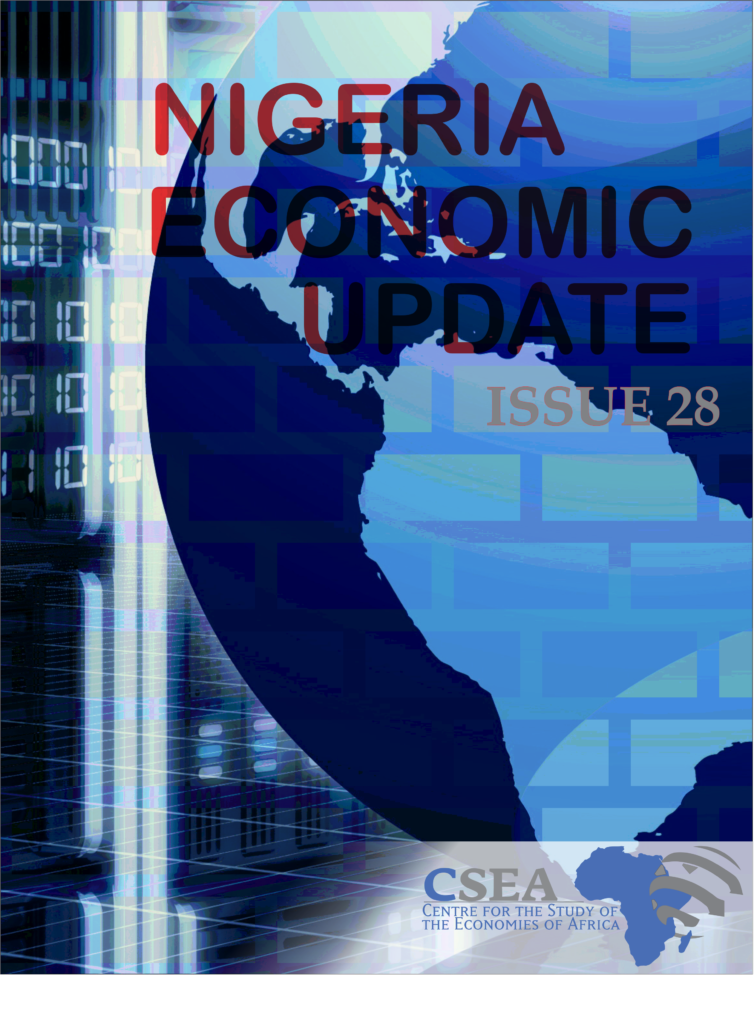Information from the Apex bank shows a likelihood of not attaining the financial inclusion target of 2020 as stated in the Nigeria Financial Inclusion Strategy (NFIS) of 2012. Precisely, the CBN’s 2016 financial inclusion report states that only 58.4 percent of Nigerian adults were financially included as against the overall financial inclusion rate targeted at 80 percent. Similarly, only about 48.6 percent use formal financial services compared to the targeted 70 percent1. Related to the targets are 22 key performance indicators that Nigeria still lags behind in. Leveraging on technology to boost financial inclusion would be a significant step forward
Macroeconomic Report & Economic Updates

August 2, 2018
Nigeria Economic Update (Issue 28)
Information from the Apex bank shows a likelihood of not attaining the financial inclusion target of 2020 as stated in the Nigeria Financial Inclusion Strategy (NFIS) of 2012. Precisely, the CBN’s 2016 financial inclusion report states that only 58.4 percent of Nigerian adults were financially included as against the overall financial inclusion rate targeted at […]
Read →
Related
Nigeria Economic Update (Issue 29)
OPEC weekly basket
price decreased marginally from $45.95 on June 24, 2016 to $45.26 on July 1,
2016,while Nigerias bonny light fell by $1, from $48.90 to $47.91.
The apparent decline in crude oil price was driven by lingering market demand
uncertainty, following the unexpected Brexit referendum. More so, ease
in supply disruptions in Nigeria and Canada may have contributed to the
downward pressure on prices. Going forward, until there is greater regulatory
precision on global oil output levels, prices may likely remain stuck or continue
to exhibit a downward trend. Although, Nigerias fiscal constraints slightly
relaxed with oil production increasing in the review week (following repairs on
sabotaged pipeline channels), potential global crude oil oversupply threatens
governments revenues. However, oversupply threats could be reduced if there is
a consensus on oil production quotas in the upcoming OPEC meeting.
Nigeria Economic Update (Issue 38)
Recent
NBS data on Nigerias real GDP growth rate declined from -0.36 percent in
2016Q1 to -2.06 percent in 2016Q2. With negative GDP growth rate in
two consecutive quarters, Nigeria records its first recession in 23 years. Both
the oil and non-oil sectors continued to contract by -15.59 and -0.20
percentage points, respectively, relative to preceding quarter. The worsening
growth rate in the oil sector was largely driven by the decline in domestic crude
oil production by 14.5 percent relative to preceding quarter
